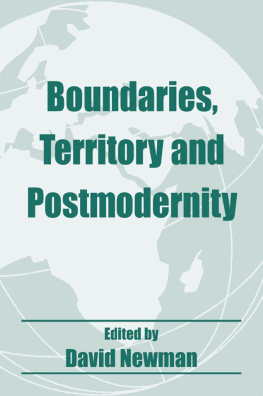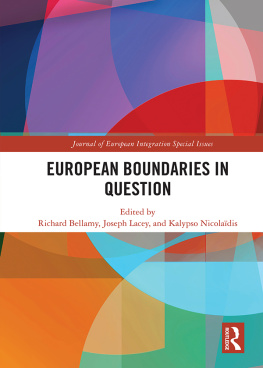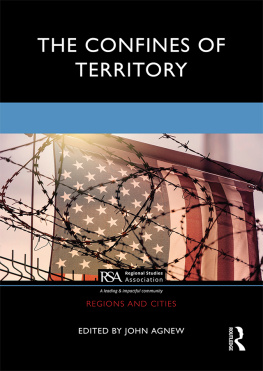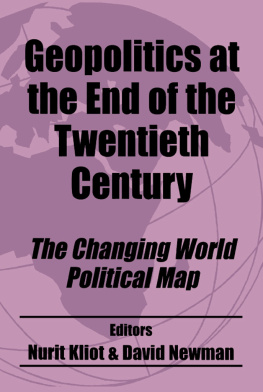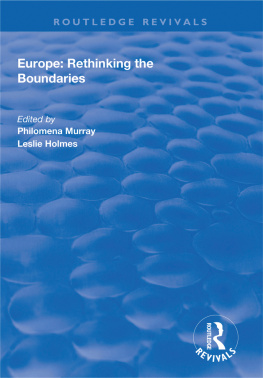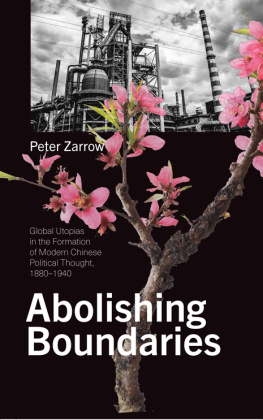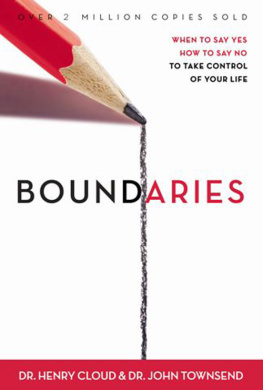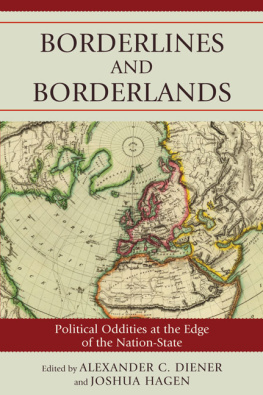Boundaries, Territory
and Postmodernity
Books of Related Interest
Land-Locked States of Africa and Asia
Dick Hodder, Sarah J. Lloyd and Keith McLachlan (eds.)
Geoproperty
Foreign Affairs, National Security and Property Rights
Geoff Demarest
The State in Western Europe
Retreat or Redefinition
Wolfgang Mller and Vincent Wright (eds.)
Geopolitics and Strategy
Colin S. Gray and Geoffrey Sloan (eds.)

First publised in 1999 in Great Britain by
FRANK CASS PUBLISHERS
Crown House, 47 Chase Side, Southgate
London, N14 5BP, England
and in the United States of America by
FRANK CASS PUBLISHERS
c/o ISBS
5824 N.E. Hassalo Street
Portland, Oregon 97213-3644
Website: www.frankcass.com
Copyright 1999 Frank Cass & Co. Ltd.
Reprint 2002
British Library Cataloguing in Publication Data
Boundaries, territory and postmodernity. (Cass studies in geopolitics; no.l)
1. Geopolitics 2. Boundaries 3. Territory, National
4. State, The
I. Newman, David
320.12
ISBN 0 7146 4973 2 (cloth)
ISBN 0 7146 8033 8 (paper)
ISBN 978 1 135 26341 6 (ePub)
Library of Congress Cataloging in Publication Data
Boundaries, territory and postmodernity / edited by David Newman. p. cm. (Cass studies in geopolitics)
Includes bibliographical references and index.
ISBN 0-7146-4973-2 (hbk.: alk. paper) ISBN 0-7146-8033-8 (pbk. : alk. paper)
1. Geopolitics. 2. Postmodernism-Political aspects. I. Newman, David, 1956 . II. Series.
JC319.B68 1999
This group of studies first appeared in a Special Issue on Boundaries, Territory and Postmodernity of Geopolitics 3/1 (Summer 1998) (ISSN 1465-0045) published by Frank Cass.
All rights reserved. No part of this publication may be reproduced, stored in a retrieval system or transmitted in any form, or by any means, electronic, mechanical, photocopying, recording or otherwise, without the prior permission of Frank Cass and Company Limited.
Printed in Great Britain by Antony Rowe Ltd, Eastbourne
Contents
DAVID NEWMAN
This special issue of the renamed journal, Geopolitics, attempts to place the renaissant discipline of geopolitics within the context of the post-modern debate concerning territory, boundaries and sovereignty, and the role of the State in a world which has been impacted by globalisation on the one hand, and the resurgence of ethnic and national identities on the other. Geopolitics, as a discipline, has undergone a major renaissance during the past decade, from being blackballed and excluded from much of the academic discourse during the three to four decades following the end of the Second World War, to having, once again, become a legitimate area of study.1 Its past associations with the German school of geopolitics of the 1930s and 1940s, not to be ignored, is being reassessed and located within a longer tradition of the study of geopolitics, broadly defined as the study of the changing world political map and an understanding of the geo dimension of global, regional and state politics,2 or simply, the political geography of international relations.3
Like its academic sister, political geography, the comeback has been gradual, often disguised in alternative terms, such as new geopolitics,4 critical geopolitics5 or the changing world political map.6 The return of political geography was itself a tortuous experience, commencing with quantitative studies of electoral geography in the 1960s, a critical geographical focus on the local state and urban politics in the 1970s, before feeling confident enough to discuss global affairs and, by association, geopolitics in the 1980s. It is interesting 17 years on, to note that in the first editorial of the, then, new journal, Political Geography Quarterly, the editors saw the research agenda of the journal as focusing on such issues as the spatial organisation of the State, internal state politics and the study of locational conflict.7 The nearest they came to raising issues which could be defined as falling within the broader realm of geopolitics, was the revival of geostrategic studies and the concept of the nation state. Since that point in time, the research agenda of political geography has undergone major changes and probably sees geopolitics as being no more than one sub-constituent of the wider study of the relationship between politics and space. More recently, the collapse of the Soviet Union and the territorial reordering of Central and Eastern Europe, together with the impact of globalisation and supra-national processes on what is traditionally seen as the Westphalian territorial compartmentalisation of the world into sovereign states, has raised a host of new questions concerning the nature of the world political map.8 The study of these topics has assisted in the re-legitimisation of Geopolitics as an academic sub-discipline, and has been illustrated in the reports reflecting the development of Political Geography during the past two decades, with the introduction of such concepts as the new world order in 1991,9 critical geopolitics in 1992,10 and theorising the nature of the contemporary world disorder in 1995.11
The final nails in the coffin of geopolitical excommunication were to be seen in two recent international conferences, the one focusing on a reassessment of past geopolitical writings, the other highlighting the contemporary geopolitical research agenda. A meeting held around the theme of Europe Between Political Geography and Geopolitics, in Trieste in December 1997,12 was convened to mark 100 years since the publication of Ratzels Politische Geografie.13 This rehabilitation of Ratzel,14 for so long seen as the theoretical bete noir of geopolitics, is leading to a reexamination of many classic geopolitical texts, as well as the formulation of new geopolitical concepts and ideas which are relevant to the contemporary period of global change.
A subsequent meeting in Israel in January 1998 dealt with the theme of Geopolitics and Globalisation in a Postmodern World, with presentations focusing on the changing territorial patterns of world order and raising questions associated with the so-called postmodern discourse of state deterritorialisation, the disappearance of boundaries, and the impact of globalisation and cyberspace in undermining the Westphalian State system.15 New texts, emphasising both classic and contemporary approaches to the study and definition of geopolitics,16 and the launching of a journal under the sole name of Geopolitics17 are clear indications of the geopolitical renaissance.
The changing territorial dimensions of the world order of the past decade have played a major role in this process of relegitimation. The collapse of the bi-polar world which dominated our perceptions of global politics since the end of the Second World War necessitated a rethinking of the dynamics of state formation, the relationship between states at both global and regional levels, as well as the changing nature of war, peace, shatterbelts, rimlands, superpower domination, and a host of other concepts which had been normative for most western thinkers on the topic during this period. Gone are the days when the study of geopolitics could be neatly divided into two neat parallel compartments: the organic state (the Ratzel and Kjellen tradition) and geostrategy (the Mahon, Mackinder and Spykman tradition), respectively.18 For some, the setting of an agenda for the contemporary study of geopolitics requires the reclamation of the geopolitical tradition from its domination by the strategic community and, altruistically, converting it from a discipline for war to a discipline for peace.19

